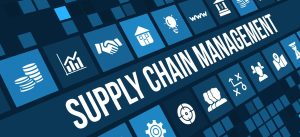Blockchain technology is revolutionizing various industries, and global trade is no exception. The decentralized and immutable nature of blockchain provides a unique opportunity to transform trade data analytics and business intelligence processes. In this article, we will explore the impact of blockchain on trade data analytics and business intelligence, highlighting its benefits and potential applications.
Introduction: The Role of Blockchain in Global Trade
Blockchain technology provides a secure and transparent platform for recording, verifying, and sharing trade-related data. Its decentralized nature eliminates the need for intermediaries, streamlining trade processes and offering significant advantages in terms of data analytics and business intelligence.
Enhancing Data Accuracy and Trust
- Immutable Data Records: Blockchain ensures the immutability of trade data, reducing the risk of data tampering or manipulation. This feature enhances data accuracy, providing reliable information for trade data analytics and business intelligence purposes.
- Verified Data Sources: With blockchain, trade data can be verified and authenticated by multiple participants, ensuring the integrity and trustworthiness of the information. This verification mechanism enhances the reliability of data used for analytics and business intelligence insights.
Streamlining Supply Chain Visibility
- End-to-End Traceability: Blockchain enables end-to-end traceability of goods throughout the supply chain. Each transaction or event related to the trade process can be recorded on the blockchain, providing a transparent and auditable trail of data. This visibility improves supply chain management and enables more accurate trade data analytics.
- Real-Time Updates: Blockchain facilitates real-time updates of trade-related events, such as order status, shipment tracking, and delivery confirmations. This timely and accurate data enables businesses to make informed decisions based on the latest information, enhancing business intelligence capabilities.
Facilitating Trade Finance and Payments
- Efficient Financing: Blockchain-based trade finance platforms enable secure and efficient financing options, such as supply chain financing or invoice factoring. By leveraging blockchain’s transparency and data integrity, lenders can assess the creditworthiness of trade participants more accurately, improving risk management and financial decision-making.
- Fast and Secure Payments: Blockchain-based payment systems facilitate faster and more secure cross-border transactions. Smart contracts can automate payment processes based on predefined conditions, eliminating the need for intermediaries and reducing transaction costs. These streamlined payment processes enhance business intelligence by providing real-time insights into financial flows.
Enabling Efficient Trade Settlements
- Automated Settlements: Blockchain’s smart contract capabilities allow for automated trade settlements based on predefined terms and conditions. This automation reduces manual errors, accelerates settlement processes, and improves overall operational efficiency.
- Transparency and Dispute Resolution: Blockchain’s transparent and auditable nature simplifies dispute resolution in trade transactions. The shared and immutable trade data stored on the blockchain provides an indisputable source of truth, facilitating faster resolution of disputes and reducing potential disputes in the first place.
Leveraging Smart Contracts for Automation
- Streamlined Contract Execution: Smart contracts on the blockchain enable the execution and enforcement of trade agreements automatically. These self-executing contracts eliminate the need for intermediaries, reduce administrative overhead, and ensure faster contract execution.
- Enhanced Compliance: Smart contracts can embed regulatory compliance requirements into trade processes, ensuring adherence to trade regulations and reducing the risk of non-compliance. This automated compliance enhances business intelligence by providing real-time insights into trade compliance metrics.
Challenges and Considerations
While blockchain offers numerous benefits for trade data analytics and business intelligence, there are challenges and considerations to be mindful of:
- Data Privacy: Ensuring appropriate data privacy and confidentiality while leveraging the transparency of blockchain technology is crucial. Implementing privacy-enhancing techniques, such as zero-knowledge proofs or private channels, can address privacy concerns.
- Scalability: Blockchain scalability remains a challenge when dealing with large volumes of trade data. However, ongoing research and the implementation of scaling solutions, such as sharding or layer 2 protocols, are continuously improving blockchain scalability.
- Standardization and Interoperability: Establishing industry-wide standards and ensuring interoperability between different blockchain platforms and trade systems is essential for seamless data integration and analytics.
Blockchain-Based Data Analytics Platforms
- Decentralized Data Marketplaces: Blockchain-based data marketplaces allow trade participants to securely share and monetize trade data. These platforms provide a decentralized environment where businesses can access and analyze a wide range of trade data, enabling advanced data analytics and business intelligence.
- Data Provenance and Auditing: Blockchain’s immutable nature enables the establishment of data provenance and auditing mechanisms. Trade data recorded on the blockchain can be traced back to its source, ensuring data integrity and enabling comprehensive auditing capabilities for trade analytics.
Enhanced Risk Management and Compliance
- Real-Time Risk Monitoring: Blockchain-powered trade data analytics platforms can provide real-time risk monitoring capabilities. By analyzing trade data in near real-time, businesses can identify potential risks, such as fraud or supply chain disruptions, and take proactive measures to mitigate them, enhancing risk management practices.
- Automated Compliance Checks: Smart contracts can be programmed to enforce regulatory compliance automatically. By embedding compliance rules into smart contracts, businesses can streamline compliance checks and ensure adherence to trade regulations, reducing compliance-related risks.
Improved Forecasting and Predictive Analytics
- Data-Driven Insights: Blockchain-based trade data analytics provides a rich source of data for forecasting and predictive analytics. By analyzing historical trade data, businesses can identify patterns, trends, and correlations, enabling accurate demand forecasting, market analysis, and predictive modeling for better decision-making.
- Machine Learning Integration: Integrating machine learning algorithms with blockchain-based trade data analytics platforms can enhance predictive analytics capabilities. Machine learning models can analyze vast amounts of trade data, identify hidden patterns, and generate predictive insights, enabling businesses to anticipate market changes and make informed strategic decisions.
Collaborative Data Analytics and Intelligence Sharing
- Secure Data Sharing: Blockchain technology allows secure and permissioned data sharing among trade participants. With appropriate access controls and encryption mechanisms, businesses can collaborate on data analytics projects, sharing insights and intelligence for mutual benefit without compromising data privacy.
- Shared Business Intelligence Platforms: Blockchain-powered shared business intelligence platforms enable multiple organizations to contribute and access aggregated trade data and insights. This collaborative approach enhances data accuracy, provides a broader perspective on market trends, and fosters collective intelligence for the benefit of all participants.
Enhanced Supply Chain Transparency and Traceability

- Provenance Tracking: Blockchain technology enables the tracking of goods’ provenance throughout the supply chain. By recording every transaction and movement on the blockchain, businesses can ensure transparency and traceability, enhancing trade data analytics and business intelligence.
- Quality Control and Compliance: Blockchain-based supply chain solutions can include features for quality control and compliance verification. Businesses can track certifications, inspections, and regulatory compliance data on the blockchain, facilitating trade data analytics for quality assurance and regulatory reporting.
Smart Contracts for Trade Execution and Settlement
- Automated Trade Execution: Smart contracts automate trade execution by executing predefined conditions and actions based on the terms of the agreement. This automation reduces manual intervention, minimizes errors, and speeds up trade processes, enabling faster and more efficient business operations.
- Immutable Contract Records: With blockchain, smart contracts are recorded immutably on the blockchain, providing a reliable and auditable record of all contract-related activities. These transparent and tamper-proof contract records contribute to accurate business intelligence and facilitate post-trade analytics.
Fraud Prevention and Counterfeit Detection
- Immutable Audit Trail: The immutable nature of blockchain allows for an audit trail that verifies the authenticity and legitimacy of trade transactions. By analyzing the transaction history recorded on the blockchain, businesses can detect fraudulent activities and identify counterfeit goods in the supply chain.
- Authentication and Verification: Blockchain-based solutions can incorporate mechanisms for verifying product authenticity, such as unique identifiers or digital signatures. These authentication measures strengthen trust and enable businesses to validate the origin and integrity of traded goods, supporting accurate trade data analytics.
Integration with Emerging Technologies
- Internet of Things (IoT) Integration: Integrating blockchain with IoT devices allows for the secure and automated collection of real-time trade data. This integration enables businesses to gather granular data about trade activities, such as temperature monitoring during product transportation, enhancing data analytics capabilities.
- Artificial Intelligence (AI) and Data Analytics: Combining blockchain with AI and advanced data analytics techniques opens up new possibilities for extracting insights from trade data. AI algorithms can analyze large volumes of blockchain data, uncover hidden patterns, and generate predictive models, enabling businesses to make data-driven decisions and gain a competitive edge.
Data Privacy and Security in Trade Analytics
- Decentralized Data Storage: Blockchain’s decentralized architecture eliminates the need for a central authority to store and manage trade data. This enhances data privacy by reducing the risk of unauthorized access or data breaches.
- Immutable Data Integrity: Blockchain’s immutability ensures the integrity of trade data. Once recorded on the blockchain, data cannot be altered without consensus from the network participants, providing assurance of data accuracy and preventing data manipulation.
- Secure Data Sharing: Blockchain enables secure and permissioned data sharing among trusted parties. Encrypted data sharing mechanisms, combined with blockchain’s tamper-proof nature, ensure secure trade data sharing for analytics purposes while protecting sensitive information.
Advanced Analytical Capabilities
- Big Data Analytics: Blockchain-based trade data analytics leverages big data techniques to process and analyze vast amounts of trade data. This enables businesses to uncover valuable insights, patterns, and trends that can drive strategic decision-making and improve operational efficiency.
- Real-time Analytics: Blockchain’s real-time data updates allow for real-time analytics, enabling businesses to gain immediate insights into trade activities. Real-time analytics empowers businesses to respond swiftly to market changes, optimize supply chain processes, and seize opportunities as they arise.
- Predictive and Prescriptive Analytics: By combining historical trade data with predictive and prescriptive analytics techniques, businesses can anticipate market trends, identify risks, and make proactive decisions. These advanced analytical capabilities enable businesses to stay ahead of the competition and optimize trade performance.
Auditable Compliance and Regulatory Reporting
- Transparent Compliance Records: Blockchain provides a transparent and auditable record of trade activities, making compliance audits more efficient and accurate. Regulators can access trade data stored on the blockchain, simplifying compliance verification and reducing compliance-related risks.
- Automated Regulatory Reporting: Blockchain’s smart contracts can automate regulatory reporting by automatically generating reports based on predefined rules and regulations. This automation streamlines the reporting process, reduces manual errors, and ensures timely and accurate submission of regulatory requirements.
Collaboration and Trust in Trade Analytics
- Collaborative Analytics Platforms: Blockchain-based collaborative analytics platforms allow multiple stakeholders to securely collaborate and share trade data for analytics purposes. This collaborative approach fosters trust, encourages data sharing, and facilitates collective insights and intelligence for the benefit of all participants.
- Smart Data Marketplaces: Blockchain-powered data marketplaces enable businesses to securely buy and sell trade data. These marketplaces utilize blockchain’s trust and transparency to facilitate fair and transparent data transactions, promoting data-driven decision-making and fostering innovation in trade analytics.
Conclusion
Blockchain technology has a profound impact on trade data analytics and business intelligence in global commerce. By enhancing data accuracy and trust, streamlining supply chain visibility, facilitating trade finance and payments, enabling efficient trade settlements, leveraging smart contracts for automation, and addressing challenges and considerations, blockchain empowers businesses with valuable insights, improved decision-making, and enhanced operational efficiency in the global trade ecosystem.






